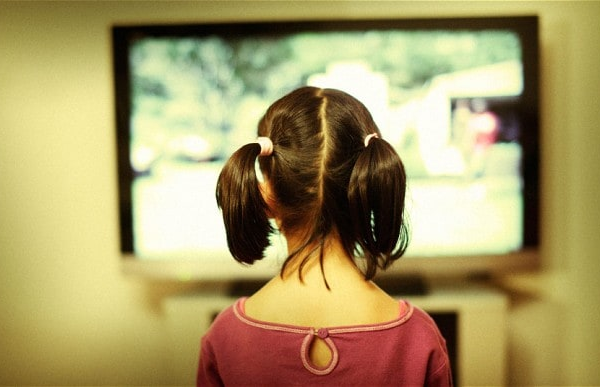
Depending on their age or maturity level, kids might not yet understand the differences between fact and fantasy. But by the time they're 7 or 8, what kids see on TV can seem all too real. For some, coverage of a sensational news story is internalized and becomes something that might happen to them. A child watching a news story about a bus bombing or a shooting in a crowded public place might worry, "Could I be next` Could that happen to me`"
Natural disasters can be personalized in the same way. Kids who see footage of floods from a hurricane far away may spend a sleepless night worrying about whether their home will be OK in a rainstorm. TV and the Internet "shrink" the world and bring it into our homes. With a focus on violent stories, the news can make the world seem more dangerous to kids than it really is.
Often the things children see and hear on the news or on websites that cover the news may be confusing and alarming. Even if you don`t let your children read or watch the news, they may hear about events from other children at school. With some preparation, you can help your children to understand and react calmly to news and current events.
The first thing to keep in mind when talking about current events with your child is to find out what your child already knows. Your child may have already heard about an event from classmates but may lack context for an understanding of the details of the event. By asking your child questions about what news topics are being discussed in school or what stories they recently saw in the newspaper or on tv, you can help your child fill in gaps in their understanding of events.
Another thing to keep in mind is that while it may be advisable to shield very young children from particularly distressing news stories, this is not likely to be an option for older children. If they don`t hear about the event from you, then they are likely to hear about it from classmates. By talking to your child first, you can help them learn distressing or confusing news from you instead of learning about it at school.
Try to watch or read the news together and encourage your child to ask questions if they see something confusing or upsetting.
Consider your own reactions. Your kids will look to the way you handle the news to determine their own approach. If you stay calm and rational, they will, too.
Be honest with your child about your feelings. If a news story upsets you, it is okay to tell your child this. Showing children that having strong feelings about world events is healthy. You can also show your child how you respond to these events, whether it be by donating to a charity or by contacting your government representatives. While you should be honest about your feelings, you shouldn`t try to force your child to feel the same way. Encourage your child to read or watch the news critically and to draw their own conclusions.
While the world can be a confusing place and the internet allows for almost instant information on events anywhere in the world, that doesn`t mean you have to let your child be overwhelmed by the news. By talking with your child about current events and stories they see in the news or hear about at school, you can help your child to feel more confident in their understanding of the world and to become a better and more informed global citizen.
To calm children's fears about the news, parents should be prepared to deliver the truth, but only as much truth as a child needs to know. The key is to be honest and help kids feel safe. There's no need to go into more details than your child is interested in.
Although it's true that some things ` like a natural disaster ` can't be controlled, parents should still give kids space to share their fears. Encourage them to talk openly about what scares them.
Older kids are less likely to accept an explanation at face value. Their budding skepticism about the news and how it's produced and sold might mask anxieties they have about the stories covered. If older kids are bothered by a story, help them cope with these fears. An adult's willingness to listen sends a powerful message.
Teens also can be encouraged to consider why a frightening or disturbing story was on the air: Was it to increase the program's ratings or because it was truly newsworthy` In this way, a scary story can be turned into a worthwhile discussion about the role and mission of the news.
It's always important to keep an eye on kids' TV and online viewing habits so you know what they hear and see.
Other tips:
- Discuss current events with your kids regularly. Help them think through stories they see or hear about.
- Ask questions: What do you think about these events` How do you think these things happen`
- Watch the news with your kids to filter inappropriate or frightening stories.
- Anticipate when guidance is needed and avoid shows that are graphic or inappropriate.
- If you're uncomfortable with the content of the news, turn it off.
- Put news stories in context. Broaden the discussion from a disturbing news item to a larger conversation: Use the story of a natural disaster as a way to talk about philanthropy, cooperation, and the ways that people cope with hardship. Was an event an isolated incident or related to something else` This helps kids make better sense of what they hear.
- Talk about what you can do to help. After a tragic event, finding ways to help those affected by it can give kids a sense of control and help them feel more secure.
